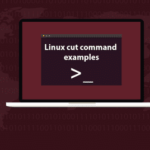If you think that running your own alternative to Dropbox and OneDrive requires more technical expertise than you have, think again. Modern self-hosted file-sharing solutions make it very simple to set up a cloud storage system on your own web server, and their features are difficult it live without once you’ve spent some time with them.
1. ownCloud
ownCloud is often described as an open source alternative to Dropbox, and for a good reason. This suite of client–server software for creating and using file hosting services was first announced in 2010 by KDE software developer Frank Karlitschek, who wanted to create a free software replacement to proprietary storage service providers.
Today, ownCloud is in version 10, offering the most straightforward way how to sync files and share data without any privacy concerns. The official ownCloud client is available for PCs running Windows, macOS, FreeBSD, and Linux, and there’s also a mobile version of the client for iOS and Android devices.
ownCloud can be easily extended with connections to Dropbox, Google Drive, Amazon S3, and other services, and it’s also possible to make it more capable with third-party apps, which can be installed with one click.
The community version of ownCloud is available for free without any support, but users are given the option to purchase a paid subscription for email and phone support.
2. Syncthing
Syncthing is an open source, decentralized peer-to-peer file synchronization solution written in Go. With Syncthing, your data never leave your computers and mobile devices as there are no central servers that might get compromised. Syncthing also ensures that nobody can capture and steal your data because all communication is secured using TLS and every node is identified by a strong cryptographic certificate.
Syncthing allows you to synchronize as many folders with as many people as you need. You can configure and monitor Syncthing using a responsive web GUI that runs flawlessly in all major web browsers. Syncthing itself works on macOS, Windows, Linux, FreeBSD, Solaris, OpenBSD, Android, and iOS, enabling you to seamlessly access your files from virtually any device.
3. FileCloud
Designed with enterprise users in mind, FileCloud is a self-hosted file-sharing solution designed to be integrated with enterprise networks and storage. With FileCloud, employees can access their organization’s files securely over the web, using a virtual drive and mobile apps, or with web browser add-ons.
FileCloud offers many sharing options, and it honors existing Microsoft NTFS permissions and authentication. Thanks to its integration with Office and Outlook, it’s possible to open, edit, and save any Office files stored in FileCloud right from the browser. FileCloud comes with a wide range of powerful admin tools, including an admin dashboard that displays usage trends, peak usage, access by geo, and other key file analytics.
4. Nextcloud
Licensed under the GNU Affero General Public License, Nextcloud a suite of client-server software for creating and using file hosting services. The part of Nextcloud that will probably interest you the most is Nextcloud Files, which is an enterprise- and GDPR-ready file-sharing solution that keeps data under your control.
Nextcloud Files is an open source, self-hosted product with powerful on-server and end-to-end encryption and a modern and easy-to-use web interface. Desktop clients and mobile apps are available for all mainstream platforms, allowing you to access your files and collaborate in real time from any device, anywhere.
It’s worth noting that Nextcloud is a fork of ownCloud, with the former currently being more popular. The main advantages of Nextcloud over ownCloud include a faster speed of development, Red Hat-style licensing, and greater extendibility.
5. Seafile
Seafile is a mature file-sharing software that was first conceived by Daniel Pan and other former students of Tsinghua University, Beijing in 2009. Seafile focuses on reliability and performance. The core of Seafile server is written in C, and many years of polishing by hundreds of thousands of developers from around the world have made Seafile’s syncing algorithm extremely stable and dependable.
Seafile supports state-of-the-art encryption, and upgrades to new versions are handled by a single script that takes just a few seconds to run because Seafile records very few items in a database.
How to Install and Configure ownCloud
There are several ways how you can install ownCloud on your home server. The developers of ownCloud recommend installing it the Open Build Service packages, which are maintained by ownCloud engineers and are always up-to-date. Currently, there are package manager’s configurations available for the following distributions:
- Ubuntu
- Debian
- RHEL
- CentOS
- SLES
- openSUSE Leap
If you use one of the above-listed Linux distributions, you can simply update your package manager’s configuration and install the owncloud-files package, which doesn’t install Apache, a database, or any of the required PHP dependencies—only ownCloud. To learn more about ownCloud dependencies, visit this page.
Once you have all ownCloud files installed, you should be able to open the installation wizard by pointing your web browser to the following URL: http://localhost/owncloud. The wizard is self-explanatory, but you can find help here should you run into any trouble.
Alternatively, you can also install ownCloud with Docker using the official ownCloud Docker image. Here are the official instructions that describe how to do it.
Conclusion
If you don’t like the idea of uploading your personal data to some company’s servers and hoping that their security will hold up to cybercriminals, self-hosted file sharing solutions such as ownCloud are the alternative you need to reclaim the ownership of your data.







